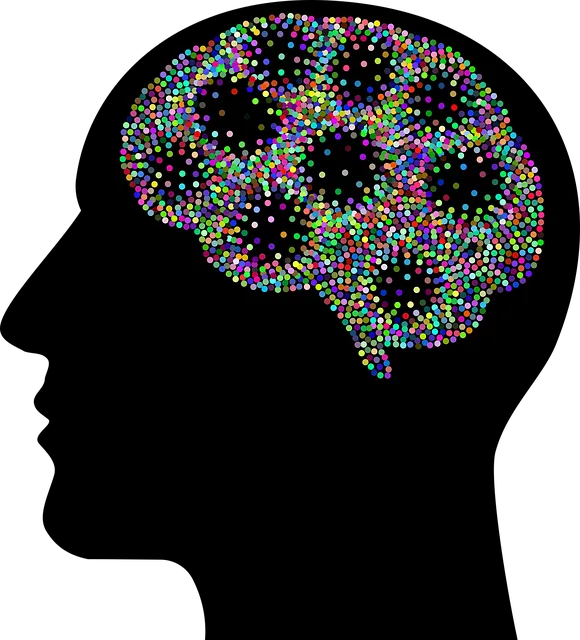Kaiser Permanente Wheat Ridge prioritizes cultural competency in mental health services, addressing diverse patient backgrounds through tailored care, conflict resolution, and empathy-building strategies. Their holistic initiative combines evidence-based practices like Mind Over Matter with a Community Outreach Program, empowering residents with mindfulness meditation techniques. Effective cross-cultural communication, based on active listening and clear language, bridges gaps between patients and caregivers. The program measures success by evaluating both clinical improvements and patient experiences, focusing on healthcare provider skills, stress management, compassion, and emotional regulation in patient interactions.
“Healthcare provider cultural competency training is a vital, evolving aspect of patient care. In today’s diverse society, understanding cultural nuances is essential for effective treatment. This article explores the significance of cultural competency in healthcare, highlighting successful initiatives like Kaiser Permanente’s Mental Health program focused on the Wheat Ridge community. We delve into strategic communication methods and assess the impact of such programs through evaluation metrics.”
- Understanding Cultural Competency in Healthcare: A Necessary Approach
- Kaiser Permanente's Mental Health Initiative: A Focus on Wheat Ridge Community
- Training Strategies for Effective Cross-Cultural Communication
- Measuring Success: Evaluating the Impact of Cultural Competency Programs
Understanding Cultural Competency in Healthcare: A Necessary Approach

In today’s diverse healthcare landscape, cultural competency is no longer an optional consideration but a necessary approach. It involves understanding and respecting patients’ cultural backgrounds, beliefs, and values, ensuring they receive quality care tailored to their unique needs. This is especially crucial in organizations like Kaiser Permanente Wheat Ridge, where a wide range of individuals from various ethnic, racial, and socioeconomic groups access mental health services.
Cultural competency goes beyond basic awareness; it empowers healthcare providers to build rapport with patients, effectively communicate, and offer culturally sensitive solutions. By integrating conflict resolution techniques and empathy-building strategies, professionals can address potential misunderstandings or barriers to care. Furthermore, encouraging the development of a self-care routine for better mental health among healthcare workers is vital, as burnout can negatively impact their ability to provide compassionate and culturally competent care.
Kaiser Permanente's Mental Health Initiative: A Focus on Wheat Ridge Community

Kaiser Permanente’s Mental Health Initiative highlights its commitment to improving community well-being, particularly in Wheat Ridge. This initiative underscores the organization’s belief in addressing mental health holistically, focusing on both individual and collective well-being. The program incorporates evidence-based practices such as Mind Over Matter Principles, emphasizing the power of mindfulness meditation in managing stress and fostering resilience.
Through their Community Outreach Program Implementation, Kaiser Permanente actively engages with Wheat Ridge residents, offering educational workshops, support groups, and resources tailored to diverse cultural needs. This grassroots approach ensures that mental health services are accessible, inclusive, and sensitive to the unique challenges faced by the community. By integrating these Mindfulness Meditation techniques into their outreach strategies, Kaiser Permanente cultivates a supportive environment where individuals can navigate life’s stressors with enhanced coping mechanisms.
Training Strategies for Effective Cross-Cultural Communication

Effective cross-cultural communication is a cornerstone of cultural competency training for healthcare providers. Strategies such as active listening, clear and concise language, and open-ended questions help bridge the gap between diverse patients and caregivers. At Kaiser Permanente mental health number Wheat Ridge, these techniques are emphasized to ensure every patient feels heard, respected, and understood. For instance, healthcare professionals are trained to adapt their communication style based on cultural nuances, ensuring information is accurately conveyed and understood.
Incorporating practices like mindfulness meditation into a patient’s Self-Care Routine Development for Better Mental Health can significantly enhance cross-cultural understanding. Emotional Well-being Promotion Techniques that focus on building trust and fostering an inclusive environment are also integral parts of the training curriculum. By integrating these strategies, Kaiser Permanente mental health number Wheat Ridge aims to provide culturally sensitive care, promoting improved outcomes and stronger patient-provider relationships.
Measuring Success: Evaluating the Impact of Cultural Competency Programs

Measuring success is a vital aspect of evaluating the effectiveness of cultural competency training programs, especially in healthcare settings. Organizations like Kaiser Permanente have recognized the importance of addressing mental health concerns within diverse communities, particularly in their Wheat Ridge location. By implementing comprehensive training initiatives, they aim to enhance patient care and outcomes. The key to gauging success lies in assessing the impact on both clinical practices and patient experiences.
Program evaluators can employ various methods to ensure positive changes are realized. This includes tracking improvements in healthcare providers’ knowledge and attitudes towards cultural competency, as well as measuring enhanced skills in stress management and compassion cultivation practices. Additionally, focusing on emotional regulation within patient-provider interactions can reveal significant progress. Such evaluations ensure that the program’s efforts translate into meaningful improvements, fostering a more inclusive and responsive healthcare environment.
Healthcare provider cultural competency training, as demonstrated by Kaiser Permanente’s Mental Health Initiative in Wheat Ridge, is a vital step towards creating inclusive and effective healthcare services. By focusing on cross-cultural communication and understanding diverse communities, providers can significantly improve patient outcomes and satisfaction. Measuring the success of these programs is crucial to ensure their ongoing effectiveness and adaptability to evolving cultural landscapes. Through continuous evaluation and innovative training strategies, healthcare organizations like Kaiser Permanente are revolutionizing care, making it more accessible and responsive to the needs of all patients.






